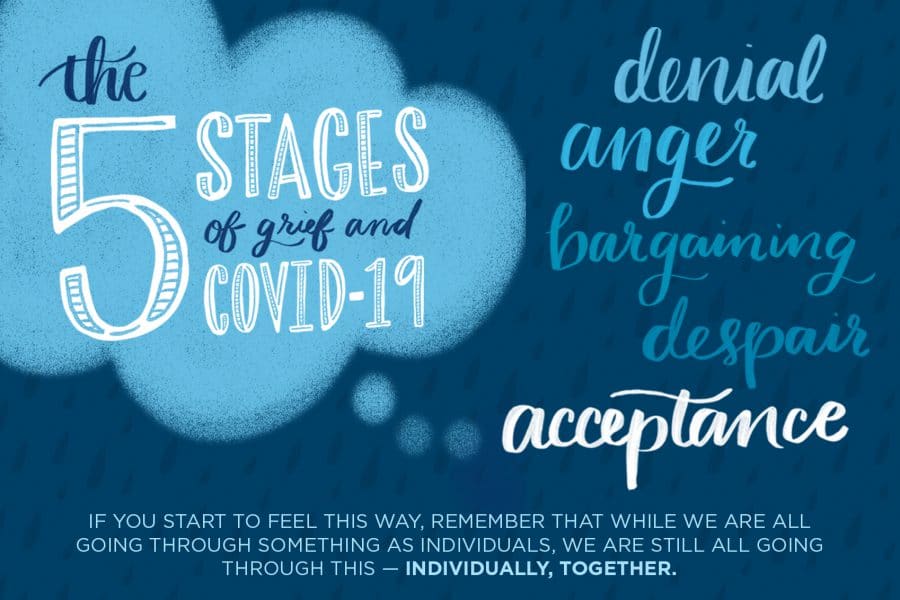By CPN Behavioral Health Department
Citizen Potawatomi Nation Health Services
We’re virtually here to help!
Bozho
(Hello),
Grief and loss. Grief can look pretty different than the ideas of experiencing sadness at loss have in the past; but then again, they can look just the same. By now, most of us have heard about the five “stages” of grief that include denial, anger, bargaining, despair and acceptance. Since the theory first rose to prominence, we have learned over the years that these stages are fluid and do not have to take place in the order listed. In fact, not only can they be experienced in different orders, but also they can be experienced more than once. We have never had a set timeline for any of these stages.

Today, with the impacts of COVID-19, we are probably experiencing grief and loss more remotely (figuratively and physically). We can experience grief over the loss of family and friends who have succumbed to the virus, and we also experience grief over the loss of family and friends due to our physical separation from them. Some experience loss of freedom in the way we have enjoyed it in the past; some have experienced the loss of employment and income. Whatever the loss, we are going through this in a way that is different than we have before. This makes it important to try and understand what we are experiencing so we have a better idea of what to do.
Right now, people are experiencing the five stages as it applies to the pandemic in a number of ways:
Denial – This isn’t real; this isn’t happening. I won’t get sick. I’m not in a risk category, so I should act like there’s nothing happening.
Anger – This is (insert name of person, country, people)’s fault! If people wouldn’t (insert any number of reasons) this wouldn’t happen!
Bargaining – This is going to be over really soon, so it’s no big deal if I go to the store more often; we can hang out as long as we wash our hands and cover our coughs.
Despair – This is never going to end; life has to be in a bubble from now on. I’m going to lose everything because I can’t work.
Acceptance – This is not something I can control. I need to listen to the experts and take every precaution. I know that will change my life, but it doesn’t mean I have to stop living.
If you start to feel this way, remember that while we are all going through something as individuals, we are still all going through this — individually, together. Just because your family, friends, neighbors, co-workers and anyone else is going through this in an way that looks different than you doesn’t automatically mean you are dealing with this the wrong way. Also, try to remember, these experiences aren’t so much stages as they are cycles. We can experience these stages in any number of combinations. And don’t be afraid to take a look at where you are with these stages and ask yourself if you could use some help. Talk with a friend or family member, talk with a spiritual leader, or talk with an expert in this area.
Of course, you can always check with the Center for Disease Control and Prevention at cdc.gov with questions and helpful information during this time. The National Suicide Prevention Lifeline is also available at 1-800-273-TALK(8255) or text CONNECT to 741741, or online at suicidepreventionlifeline.org.
Migwetch
(Thank you)!
